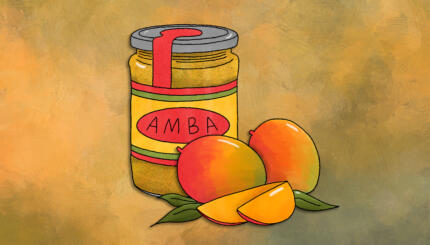A few months ago I realized I hadn’t been myself for a long time.
I’d been under a lot of stress for the better part of two years. Fueled by adrenaline and plenty of coffee, I could make it through each day without acknowledging the toll on my health. Only in year three, when the stress lifted, did my body begin to fail.
Many of the injuries I suffered could be categorized as minor, or a normal part of aging. Yet, in the aggregate, it seemed my mind-body connection had been severed, and the effect was as serious as if an artery or airway had been compromised.
First I gained 25 pounds. Since I’m a stress-faster and coffee-addict, and coffee is both an appetite suppressant and a diuretic, I couldn’t account for the weight gain. I willfully ignored the contributing calories of candy bars and teaspoons of Nutella I consumed each day; I allowed myself to believe my daily walks with the dog were sufficient exercise. I wore a uniform of loose jeans and sweatshirts in winter, elastic waist shorts, and oversized t-shirts in summer, and I pretended my tailored clothing still fit comfortably.
Then I injured my shoulder while walking the dog. My full recovery took 8 weeks of physical therapy, in which I could not work on the pottery wheel, nor walk the dog holding the leash in my once strong arm. After completing the prescribed PT sessions, I continued a strict regimen of morning exercises and stretches, using bands to tone my shoulder muscles and 2-pound weights to strengthen my wrists. I was feeling optimistic about getting into shape over the summer.
On the advice of my doctor, I stopped taking medication and she tested my hormone levels to confirm my successful passage through menopause. Before we even saw the lab results, I experienced a setback; a minor issue, requiring a few uncomfortable tests and no treatment other than resuming my daily medication. Within 6 weeks I was back to normal physically. Still, I wasn’t completely healed.
I was a more anxious version of myself.
Finally, on a beautiful fall day in October, I broke my thumb.
I’d had a couple of broken toes that healed on their own, but I knew immediately this was different. My thumb continued to swell and throb while I iced it, and after an hour of unrelenting pain, I drove myself to the ER, where I was misdiagnosed with a bad sprain. Two weeks later, a hand surgeon patiently explained the reasons why broken fingers are commonly misdiagnosed and reassured me this injury could have been much worse. I didn’t need surgery, though I did need to keep it completely immobilized for 4 weeks in a custom-made splint, so it would heal. This was followed by 8 weeks of occupational therapy to relearn how to bend my thumb, to perform daily tasks such as tying my shoes and hold a pen to write—of course, I’d broken the thumb on my dominant hand.
This is just a sample of things that went wrong with my body in the aftermath of a period of prolonged emotional stress. I share this not as a litany of complaint, but rather as a report of my decline. I was defeated, but also desperate to restore my sense of well-being.
This month, the Hebrew month of Elul, a time of introspection and reflection as we begin the season of repentance in the Jewish holiday cycle, is also my 4th month at Orangetheory Fitness. When I started working out, I couldn’t support my own body weight in the plank position for more than 3 seconds. When the coach would demonstrate exercises on the weight floor, I would look around for the 5-pound weights—there are none—and predict how many repetitions I could do before falling down.
In the beginning, I faced each workout with a sense of dread, mostly because I was certain that I’d allowed my body to deteriorate for so long it was now too late to recover what I’d lost.
I’m not referring only to the loss of physical strength. I suffered a loss of self-confidence, positive body image, and sense of self-worth. I wasn’t taking proper care of myself, and I wasn’t tending to the relationships with people who I love and who love me. I no longer recognized myself.
Now, 4 months later, I feel like I am returning to myself. I’ve lost a few pounds and increased my hand-held weights in equal measure; I can do push-ups and walk 10% inclines on the treadmill at 4 mph; last week, I rowed 5,000 meters at my own “all-out” speed. Most of all, my dread has been replaced by joy at finding the inner strength and perseverance to be myself again.
I don’t want to imply that working out was like clicking the “restore” button on a web page. How I wish that resolving personal issues could be accomplished so easily, but the process of restoration of one’s self is more like the restoration of a painting. Mending the effects of natural aging and dirt accumulation requires expertise and patience.
As Rosh Hashanah approaches, we turn our attention to the process of Teshuvah, often translated as repentance, from the root word sh-u-v, return. I think of Teshuvah as repair work that takes time, as we return to ourselves, better now than before we were broken. Restored.



